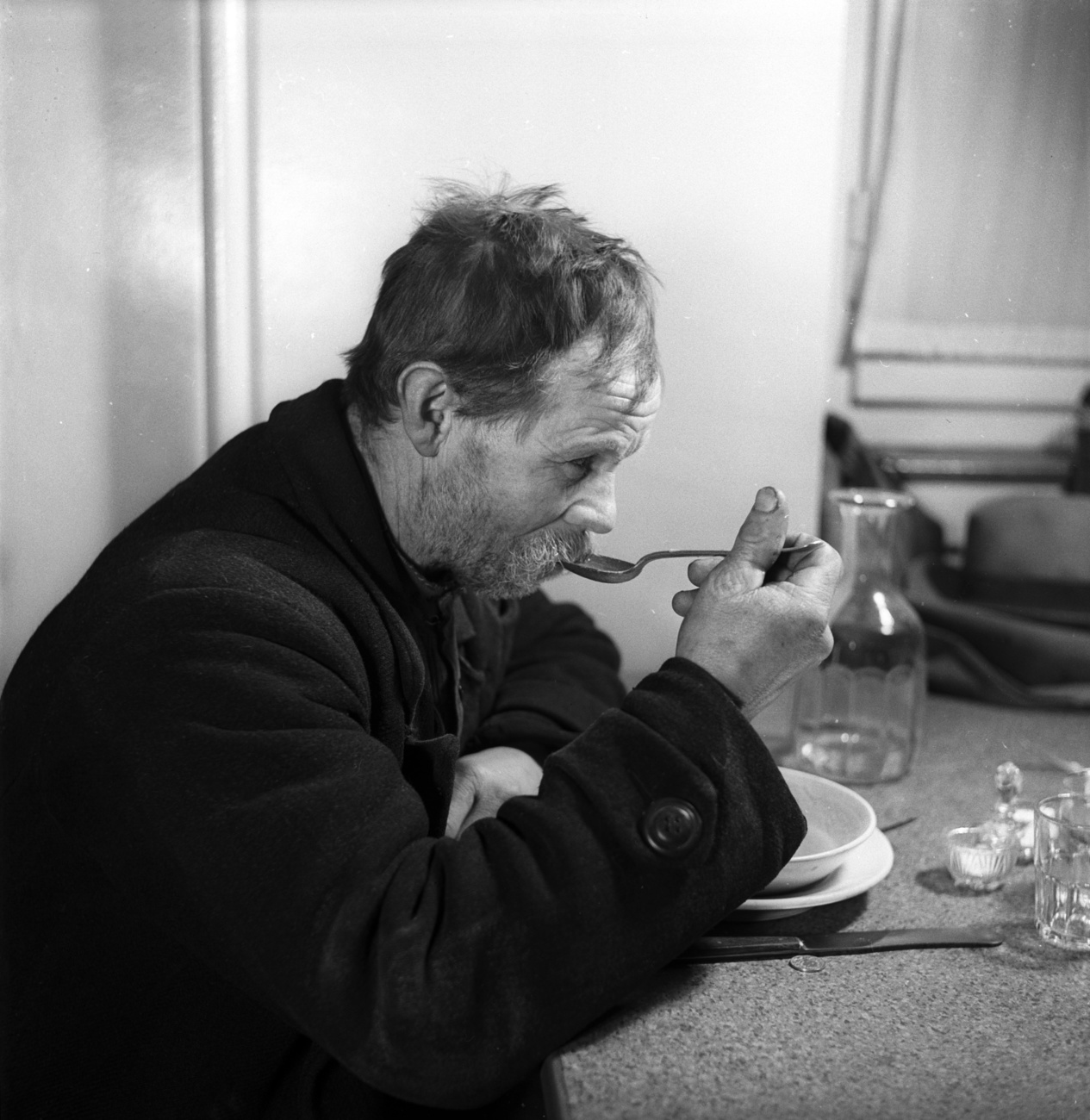How true inclusion can reinforce democracy against crises and conflicts

To face threats posed by autocracies, pandemics, disinformation and war, some politicians believe that democracies must become more resilient. But for this to happen, activists argue that these systems of government must also become fairer societies in which all minority groups can fully participate.
Participants attending the Ukraine Recovery Conference in the southern Swiss city of Lugano this past June repeatedly heard two key messages: “Russia’s war against Ukraine is an attack on all democracies in Europe” and “Resilience is essential for democracy”.
Behind these phrases were high-profile speakers like European Commission President Ursula von der Leyen and the presidents of the Ukrainian and Swiss parliaments, Ruslan Stefanchuk and Irène Kälin, respectively.
The question of who can participate politically in a democracy and who has no political rights is a fundamental one.
Democracy is in its greatest crisis since the Second World War and the Cold War.
From a longer-term perspective, this is because of the trend towards authoritarianism and autocracy of roughly the last 15 years.
In the short term, it is because of the coronavirus pandemic and since Russia’s invasion of Ukraine.
Resilience is a key element of the debate about how to handle this multifaceted crisis: democracies should strengthen their resilience and robustness “from within” in order to be better able to fend off threats.
In this SWI swissinfo.ch series, we focus on a principle of democracy that has barely featured in the resilience debate so far: inclusion.
We introduce people who are fighting for “true inclusion” – comprehensive inclusion of all the biggest minorities. We will also hear views from the opposing side, which knows that the political majority in the country is behind it.
True inclusion plays a key role in efforts to strengthen democracies from within – that is, to make them more resilient. Marc Bühlmann, a political science professor and democracy researcher at the University of Bern, puts it this way: “When the electorate is broadened in a democracy, this increases the discursive potential of the arguments put forward in a debate.”
“Those who deny access to political rights to groups such as women, people with a migrant background, 16- or 17-year-olds, or people with disabilities, deprive themselves of alternative perspectives,” he adds. “So from the point of view of democratic theory, you are forfeiting something.”
Diversity – the ultimate democratic resource
The basis of this “something” is diversity, which is in a sense the great unwritten law of democracy. Democracy consciously relies on the diversity and plurality of its citizens in order to find solutions that benefit as many people as possible.
Businesses already treat diversity as a resource. To be successful, companies tap into their pool of employees in a targeted manner. Differences in age, education levels, biographies, genders, identities, values, languages and cultures are intended to help optimise strategies, products and the working environment as well as to minimise mistakes and risks.
The CEO who determines the direction of their company as a lone wolf is becoming a thing of the past. Take the traumatic collapse of the Swiss airline Swissair in 2001: the main reason this happened was the completely misguided and highly risky strategy of its last boss, which consisted of buying up a succession of ailing small airlines. The failure of the airline, which was also partly a consequence of 9/11, would probably not have happened if a broad-based management had been involved in strategy development.
Broad benefits
But back to politics: The smart use of diversity as a resource appears to be part of the original meaning and purpose of democracy. Such an approach has many advantages:
- political participation as an instrument for integration
- larger pool of arguments
- lively public debate
- more basis for decision-making, more solid solutions
- better representation of diverse population groups
- moderation of differences instead of polarisation, exclusion or escalation
- greater legitimacy for the results of elections and votes
- greater support for decisions
- greater trust in the state and its political institutions
- strengthening of social cohesion
- formation of the political self-image of citizens (“political self”)
- greater stability
There are other arguments as well:
- diversity instead of homogeneity
- tolerance instead of exclusion and discrimination
- justice instead of privilege
- more resilience to ward off crises and attacks
Inclusion as the antithesis of war
Russia’s invasion of Ukraine is probably partly a result of the fact that President Vladimir Putin has almost completely destroyed the “discursive potential of arguments” in the Kremlin and throughout Russia. He has silenced critical voices – politicians, activists and the media – by using persecution, prison camps, fines and bans.
Putin is the lone autocrat who can send tens of thousands of people to war with one order and put the rest of the world in fear.
If true inclusion stands at one end of the democratic scale, totalitarian rule, dictatorship, death and destruction stand at the other.
Switzerland’s limited inclusion
But the world is not black and white. Inclusion, despite being the most democratic of all democratic principles, has a difficult time in many free societies. This is even true for Switzerland, which is often seen as a model democracy.
Today its population counts 8.7 million. More than 25% are people with a migrant background and no Swiss passport. As such, they have no political rights in Switzerland’s democracy.
Among those over 18 years of age, as many as 37% do not have a Swiss passport and are therefore excluded from the political system.
Women excluded for almost 125 years
Before immigrants, Swiss women suffered this fate. They did not receive the right to vote or to stand for election until 1971. For 123 years, democracy in Switzerland was an all-male event, and so the country was only half a democracy at best. In the liberal sense of a democracy with universal suffrage, Switzerland, founded in 1848, has only been a full democracy for just over 50 years.
Even today, Switzerland excludes people with disabilities who are under full guardianship, as well as young people aged 16 and 17.
“Swiss voting rights should not be free – they are only awarded in return for achievement,” Thomas Burgherr, a lawmaker in the conservative right Swiss People’s Party, said at a democracy conference in 2016. “And that means gaining citizenship.”
The maxim “voting rights for citizens only” still represents the view of the majority of voters in Switzerland. Left-leaning members of parliament regularly submit proposals to introduce voting rights for people with a migrant background. Just as often, these are defeated by the conservative majority.
The latest example of this came at the beginning of June, when the lower house slapped down two parliamentary initiativesExternal link demanding political rights for immigrants who have lived in Switzerland for at least five years. The Greens had demanded voting and electoral rights on a national level for this group, while the Social Democrats had called for these rights on a local level.
Behind the opposition lies a conviction that Swiss citizenship should be a reward for successful assimilation.
Freedom for all
Diversity consultant Estefania Cuero belongs to a young generation of researchers and activists who associate inclusion not only with fundamental democratic values such as freedom, but also with justice. Cuero, who is doing her doctorate at the University of Lucerne, focuses on underprivileged people, particularly those with a migration background.
“Switzerland’s democracy excludes the socially disadvantaged,” says Cuero. “The privileges and standards of others mean they are excluded.”
To include new groups, people with privileges must be willing to share their resources, she adds.
Swiss writer Roger de Weck also links inclusion in political processes directly to the concept of freedom when he says: “We must counterbalance the individual’s freedom to defend his or her privileges with freedom for all.”
Sanija Ameti, co-president of Operation Libero, a political movement that favours an open and progressive Switzerland, points out the cost of limited inclusion in the country’s democracy: the lack of representation for minorities.
“In Switzerland, many people lack trust in the state because they and their group are not represented anywhere,” says Ameti, who fled with her family from Bosnia to Switzerland as a nine-year-old before war in the former Yugoslavia broke out.
‘Paradox of democracy’
There are political rights for foreigners in Switzerland, but only in limited locations. Just two of 26 cantons and around 380 out of a total of 2,148 Swiss municipalities have granted voting rights to non-Swiss citizens.
Adrian Vatter, a professor of political science at the University of Bern, speaks of a “paradox of Swiss democracy”. Because the majority of voters tend to oppose an extension of the right to vote – for example, to those under 18 – the expansion of democracy is making slow progress. To put it plainly, one could say that direct democracy is holding up the democratisation of a democracy.
Ambivalent US
The United States, the first model democracy of the modern era, also presents a contradictory picture. On the one hand, it is a classic destination country for immigrants and grants citizenship to all those born on its territory.
But governors in Republican states, in particular, engage in voter suppression, excluding millions of eligible American citizens from elections or setting the hurdles so high that many are deterred from participating. This is all done by passing laws, so it is legal.
In 2020, over 5 million people could not vote in the US presidential election as a result of state laws that ban those with a felony conviction from the voting booth. Some states also restrict voting rights for the prisoner population, which totals 2.1 million across the US.
Voter suppression also includes raising bureaucratic hurdles to voting, for example at universities, and – as practised most notably by former president Donald Trump – by discrediting absentee voting as a “gateway to electoral fraud”.
These practices have sparked criticism even within the Republican Party. “These laws are not passed in the interest of the people, but in the interest of the political party that controls the state legislature,” Dane Waters, a Republican political strategist from Virginia, told SWI swissinfo.ch in the run-up to the last presidential elections.
Glimmers of hope in Taiwan
But there is also good news from Taiwan. Digital Minister Audrey Tang was a key figure in the introduction of co-governance on the island. This means joint, inclusive governance.
“We don’t work for the people, but with them,” Tang said at an event with Swiss democracy and digital specialists at the end of 2021.
“We fought the pandemic without lockdowns and the ‘infodemic’ without censorship,” she added. “We owe that solely to our cooperation with the people.”
In the co-governance approach, teenagers and even schoolchildren are included. They too can raise personal or social problems on participatory platforms and make suggestions for improvement. If they receive the support of 5,000 people, all stakeholders and authorities, including the initiators, sit down at a table and work out a solution – together and as equals.
This may sound like a fairytale in times like these, but it is a measurable reality. On the Democracy Index of the British newspaper The Economist, Taiwan jumped no less than 23 places into the top 10 in the pandemic years 2020 and 2021. Now in eighth place, Taiwan has even overtaken Switzerland. Switzerland, whose direct democracy Audrey Tang also admires, moved up from 12th to 10th place last year.
Translated from German by Catherine Hickley/gw

In compliance with the JTI standards
More: SWI swissinfo.ch certified by the Journalism Trust Initiative













You can find an overview of ongoing debates with our journalists here . Please join us!
If you want to start a conversation about a topic raised in this article or want to report factual errors, email us at english@swissinfo.ch.